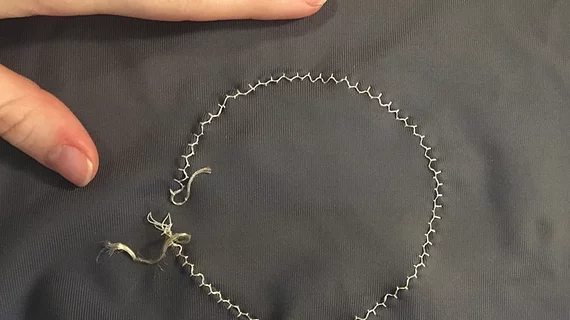New stretchable, wearable coils deliver high-quality MRI scans
Purdue University researchers have created a patient-friendly MRI coil that they believe can eventually produce higher-quality image than the current standard.
That’s the promise of the new stretchable, wearable radio-frequency coils that can be placed close to a patient’s skin, opposite traditional coils which are rigid and difficult to work with. The novel design is more convenient for individuals receiving a scan and produces high-quality images that may eventually surpass those achieved using conventional MRI machines.
"Imagine going for an imaging session and they strap on a comfortable fabric with the coils embedded inside," Joseph Rispoli, an assistant professor in Purdue's College of Engineering, said in a statement. "We created an adaptable, wearable and stretchable fabric embroidered with conductive threads that provides excellent signal-to-noise ratio for enhanced MRI scanning."
To create their hardware, Rispoli and colleagues borrowed a special thread technology used in both the aerospace and defense sectors. The engineers used their stretched coils to produce in-vivo human wrist images and compared those to scans taken using a fast-spin echo sequence.
Their initial results showed a 13%-30% decrease in signal-to-noise ratio—depending on the amount of stretch and direction—compared to standard coils. The drop, however, is less severe than that recorded in other stretch coil designs, they noted.
Joint imaging appears to be the engineers’ main target, but they stressed that it is also applicable to breast MRI. More work will be needed, but the team is confident in what they have thus far.
"Our preliminary results show a full-scale device will be superior in all aspects of diagnostic testing, including increased sensitivity and fewer false positives," Rispoli noted.
The group’s original research was published in IEEE Transactions on Biomedical Engineering.

